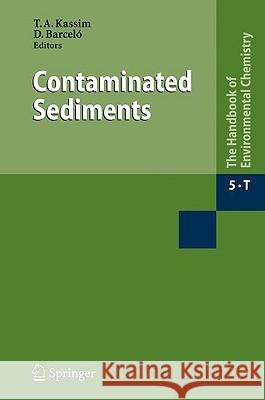Contaminated Sediments » książka
Contaminated Sediments
ISBN-13: 9783540880134 / Angielski / Twarda / 2009 / 181 str.
EnvironmentalChemistryisarelativelyyoungscience.Interestinthissubject, however, isgrowingveryrapidlyand, althoughnoagreementhasbeenreached as yet about the exact content and limits of this interdisciplinary discipline, there appears to be increasing interest in seeing environmental topics which are based on chemistry embodied in this subject. One of the ?rst objectives of Environmental Chemistry must be the study of the environment and of natural chemicalprocesseswhichoccur in theenvironment. Amajor purpose ofthisseriesonEnvironmentalChemistry, therefore, istopresentareasonably uniform view of various aspects of the chemistry of the environment and chemical reactions occurring in the environment. The industrial activities of man have given a new dimension to Envir- mental Chemistry. We have now synthesized and described over ?ve million chemicalcompoundsandchemicalindustryproducesabouthundredand?fty milliontonsofsyntheticchemicalsannually. Weshipbillionsoftonsofoilper yearandthroughminingoperationsandothergeophysicalmodi?cations, large quantities of inorganic and organic materials are released from their natural deposits.Citiesandmetropolitanareasofupto15millioninhabitantsproduce large quantities of waste in relatively small and con?ned areas. Much of the chemical products and waste products of modern society are released into the environment either during production, storage, transport, use orultimate disposal. These released materials participate in natural cycles and reactions and frequently lead tointerference and disturbance of natural systems. Environmental Chemistry is concerned withreactions in the environment. It is about distribution and equilibria between environmental compartments. It is about reactions, pathways, thermodynamics and kinetics. An important purpose of this Handbook, is to aid understanding of the basic distribution andchemical reactionprocesses whichoccur intheenvir











